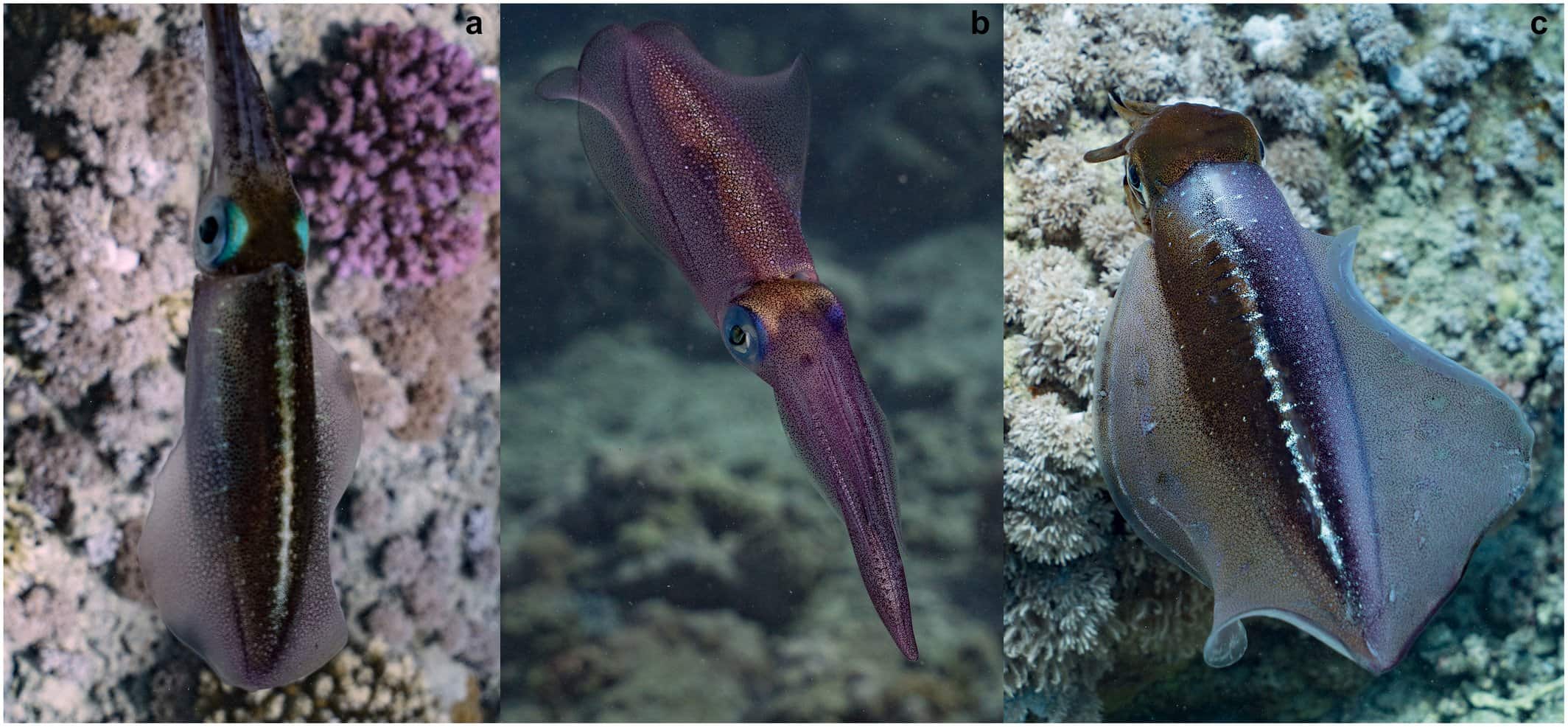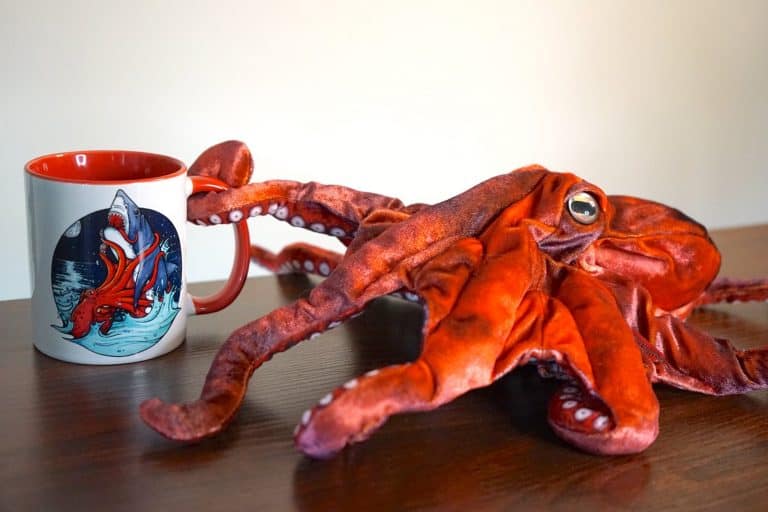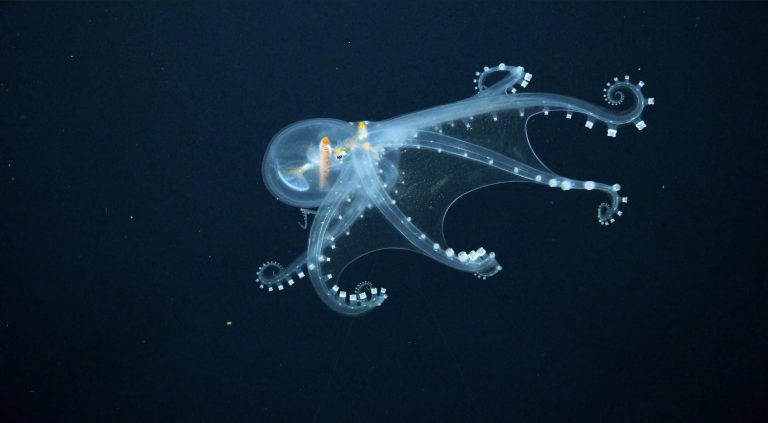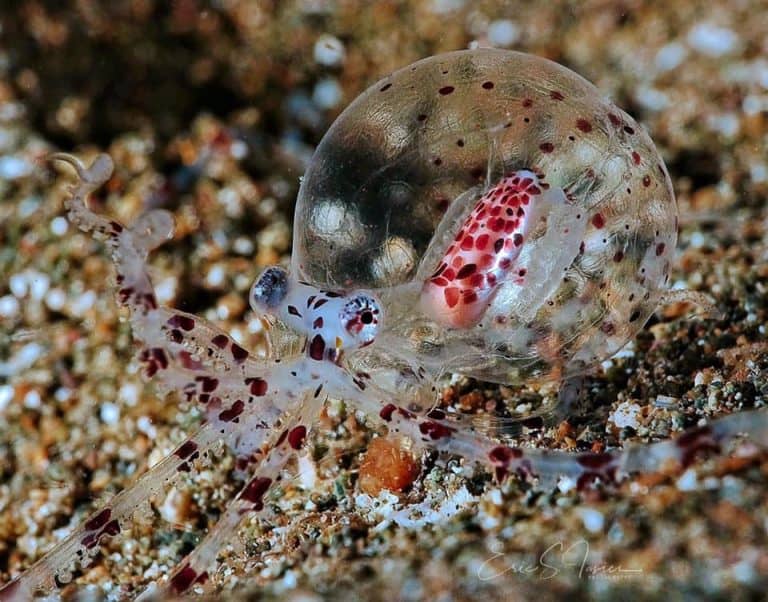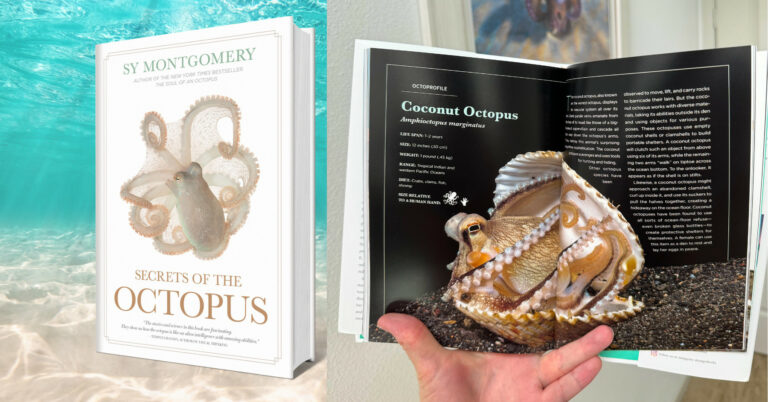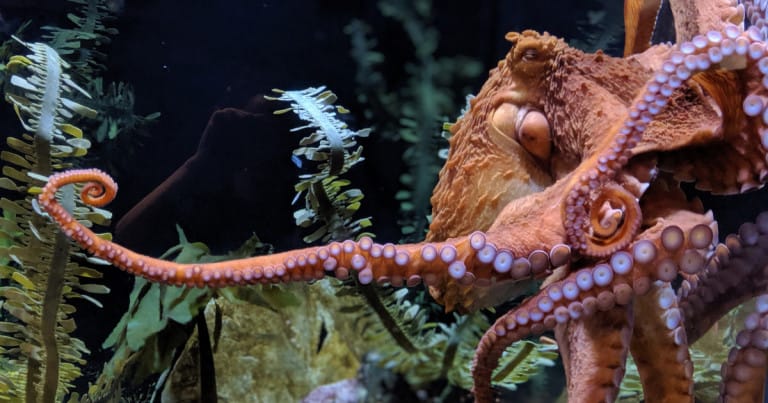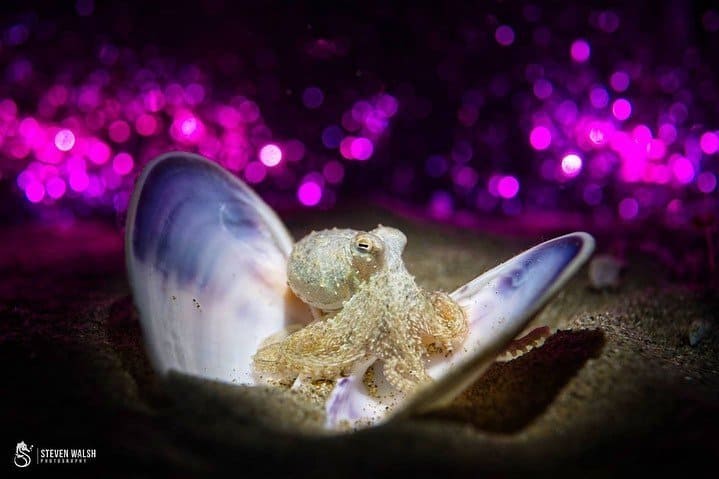House Hunters: Squid Edition! (Male Squids Search For Dwelling)
Breaking cephalopod news!! Squids might actually border on devoted parents-to-be and enjoy perusing their neighborhood reefs for the perfect home. Up until now, squids have led us to believe that they are a mate, lay eggs (if you’re the female), and get on with their day type of cephalopods. However, thanks to scientist Eduardo Sampaio (who also discovered that octopuses like to sucker punch fish), we now know squid might have some paternal instincts after all. Let’s see how males squids search for a dwelling!
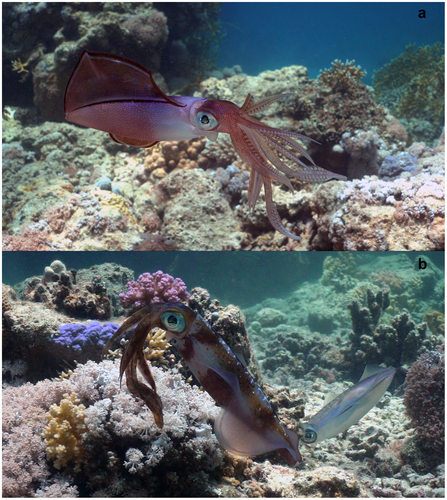
The Mating Habits Of Squid (That We Have Known To Be True This Whole Time)
For a species that’s known to be on the promiscuous side, the Bigfin Reef Squid (Sepioteuthis lessoniana) come together in large groups when they are ready to mate.
This gathering involves lots of flashing of chromatophores and aggression between males. Females flush bright purple for their come-hither look while males display stipes equivalent to a human “wink wink, I’m interested in you” move.
Males can split their bodies in two. They make one side brown while simultaneously flashing white to tell other male squids to “get moving, she’s taken”. On the other side, they flush with purple. This signals to their lady love that they are also very much interested.
Wait… There’s More Than One Male Partner?
In the mix are also sneaky, smaller males that sidle on up to a lady squid and deposit their spermatophore. They do this when the bigger male in the pair isn’t looking. They also display female-like colors, effectively tricking the reigning male.
🐙 Octopus Fun Fact
Both male and female squid have a ‘hit it and quit it’ type of attitude when it comes to reproduction and parenting strategy!
Where Do Mama Squids Lay Their Eggs?
After a mass spawn event, tubes of eggs can be found:
- In clumps abandoned on the seafloor
- Stuck to algae
- Or, in between rock crannies
Unlike female octopuses who feverishly guard their many strings of eggs (also known as festoons!) until they hatch, giving up their own lives in the process, female squids will lay their eggs on the seafloor and then, well, bounce.
Even the largest cephalopod to rule them all, the Humboldt squid, releases her eggs in a massive sac to float around the ocean unprotected and at the mercy of predators!
🐙 Octopus Fun Fact
Squids also tend to die after mating because they expended their resources protecting and loving their offspring until they hatch.
Not exactly what you would describe as doting parents.
Male Squids: Caring And Nurturing Parental Figures?
So, how did we find out that squids might be a bit more caring towards their babies than we previously thought? Well, it’s all thanks to scientist Eduardo Sampaio, who observed some interesting behavior in Bigfin Reef Squid while SCUBA diving in Egypt’s Red Sea.
After examining video footage, he noticed something interesting with the male squids. The paired-up males would enter crevices in the reef and pop out moments later, all the while leaving their females unattended.
This is a big risk, considering that leaving a female during a group mating session. That means another male could easily swoop in and mate with her.
But, this behavior has the potential to pay off in the long run!
While the male does abandon his mate-guarding for a moment, searching for a secure and well-protected home for his future offspring could result in a decrease in egg predation.
A win for both mom and dad squid!
As the saying goes “A happy home is where predators won’t come to eat your babies.”
Curious To Know What These Males Are Looking For In A Dwelling?
Scientists haven’t quite figured that out just yet. But, they believe there could be several reasons they go around probing different locations. The male could be inspecting a spot for potential predators.
If you’re looking for a safe space for your babies, chances are you’re going to want to get out ahead of them getting eaten right off the bat.
Males could also be in there doing some housekeeping! I don’t care who (or what) you are- coming home to a clean house is the best! Especially when you didn’t have to clean it yourself.
Or, they might just be in there to mark a specific site for their female to say “honey, this is a wonderful crevice with good water flow and a stable surface to attach your eggs to, but I understand if you want us to keep our options open.”
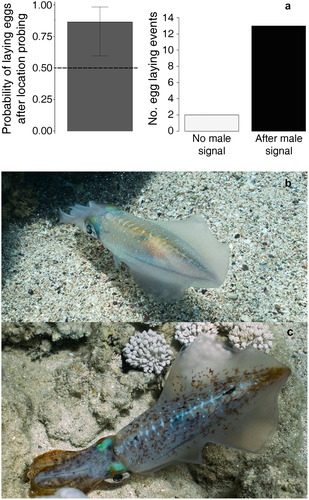
🐙 Octopus Fun Fact
Bigfin Reef Squids are distributed around the world’s tropical waters found from Australia to Hawaii to the Red Sea.
When Eduardo Sampaio started discussing his findings with other cephalopod scientists, scientist Samantha Cheng mentioned she had seen the same interaction in Indonesian waters years earlier in 2013.
This points toward it not being an isolated event and instead, shows us that the mating lives of squid might be much more complex than we originally thought.
Aren’t you excited for the juicy follow-up research that this discovery will inspire?!
Male Squids: A Fatherly Figure (It’s True!)
This isn’t the first time parental care has been observed amongst squid!
A deep-sea Black-Eyed Squid, Gonatus onyx, was observed carrying around thousands of her eggs beneath her arms in a tube-like sac. Five different females were observed floating at depths between 1,500 meters (~5,000 feet) and 2,500 meters (~8,200 feet) in Monterey Canyon off the Californian coast in 2000 and 2002.
The female Black-Eyed Squid, using rows of hook-like talons on the underside of her arms to cart her offspring around, was the first observation of egg-brooding in squids.
Deep-sea cephalopods continue to amaze us with their unique adaptations to their deep surroundings. They always seem to blow the status quo of shallow water cephalopods right out of the water. There’s still so much we don’t know; but it just goes to show, you’ll always learn something new if you hang out with cephalopods for long enough.
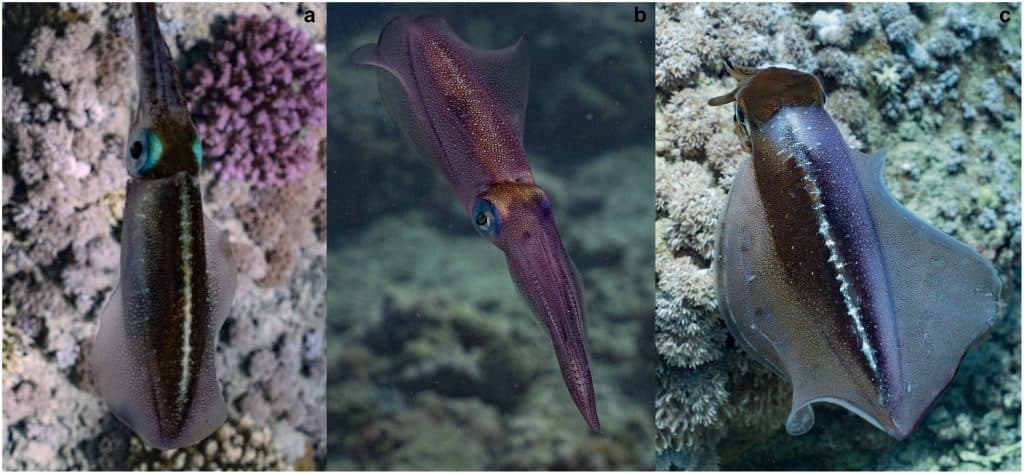
If you want to educate yourself some more about all sorts of different cephalopods, take a look at our encyclopedia. Or, what we call it, our Octopedia!
Connect with other octopus lovers via the OctoNation Facebook group, OctopusFanClub.com! Make sure to follow us on Facebook and Instagram to keep up to date with the conservation, education, and ongoing research of cephalopods.
More Posts To Read:
- Book Giveaway: “Secrets of the Octopus” & Bonus interview!
- ‘Artist Spotlight’ Of The Week: Victor Grasso
- Meet the Cockeyed Squid: the Deep-Sea Animal with a Giant Eye!
- ‘Cephalotography’ Of The Week: Jialing Cai
- 10 Facts About Baby Nautilus!
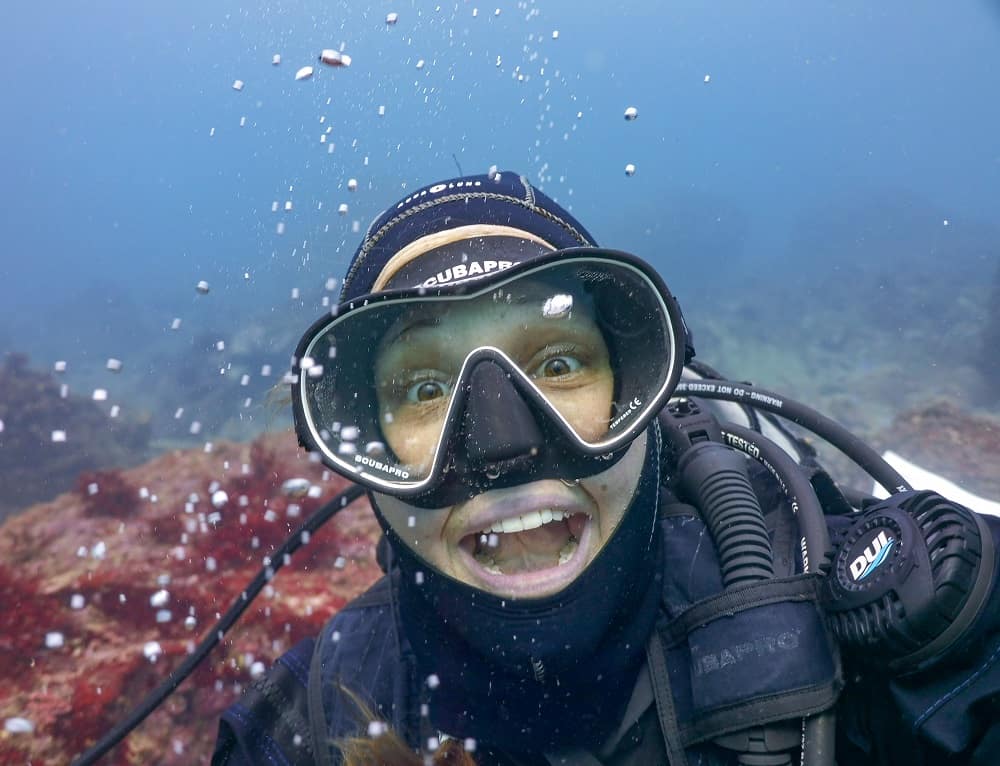
Corinne is a biologist with 10 years of experience in the fields of marine and wildlife biology. She has a Master’s degree in marine science from the University of Auckland and throughout her career has worked on multiple international marine conservation projects as an environmental consultant. She is an avid scuba diver, underwater photographer, and loves to share random facts about sea creatures with anyone who will listen. Based in Japan, Corinne currently works in medical research and scientific freelance writing!
